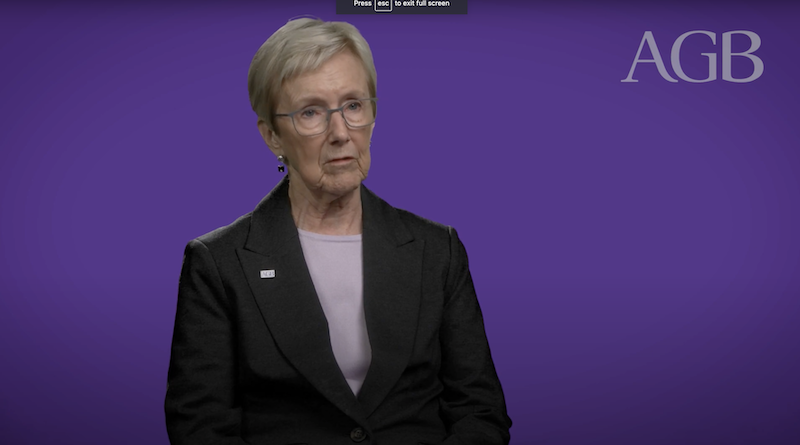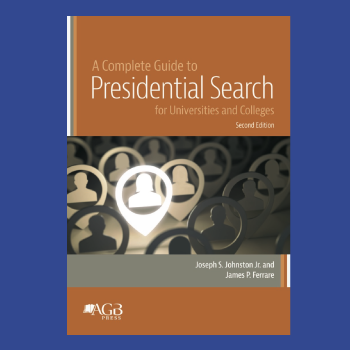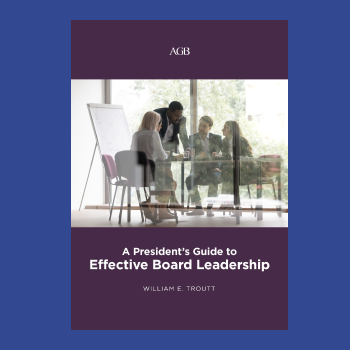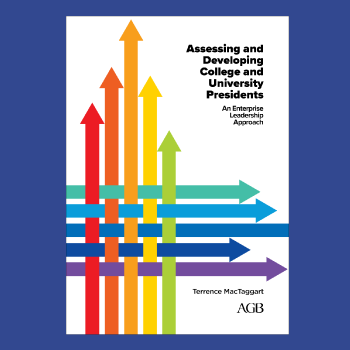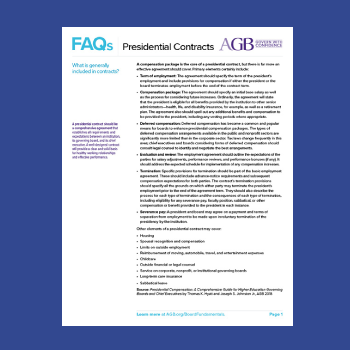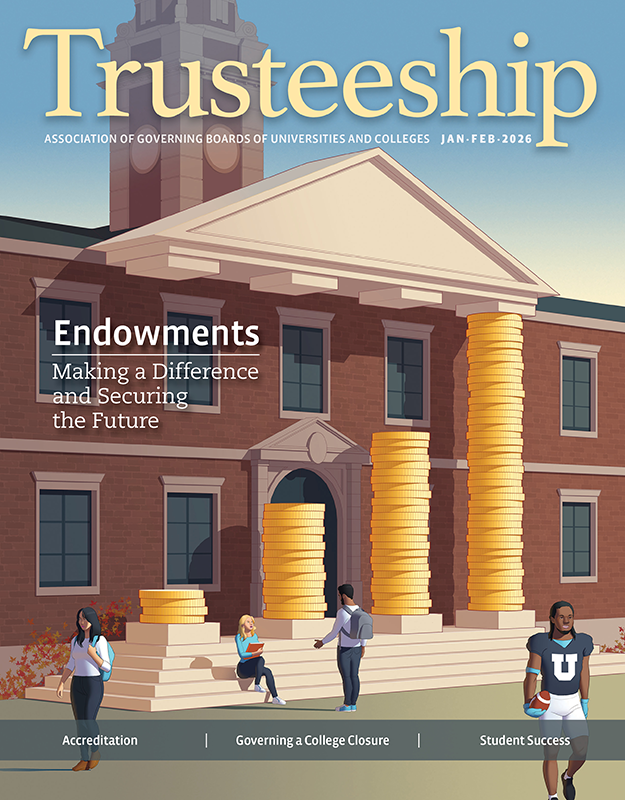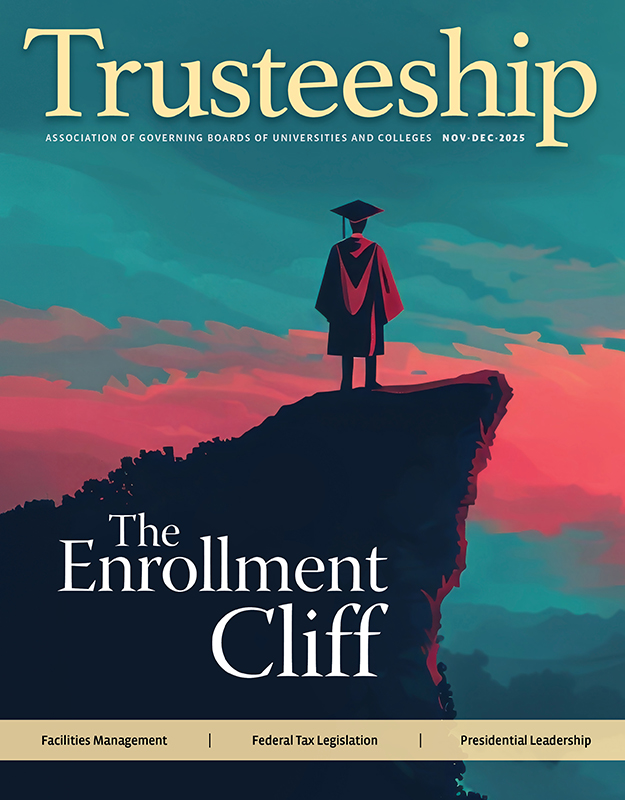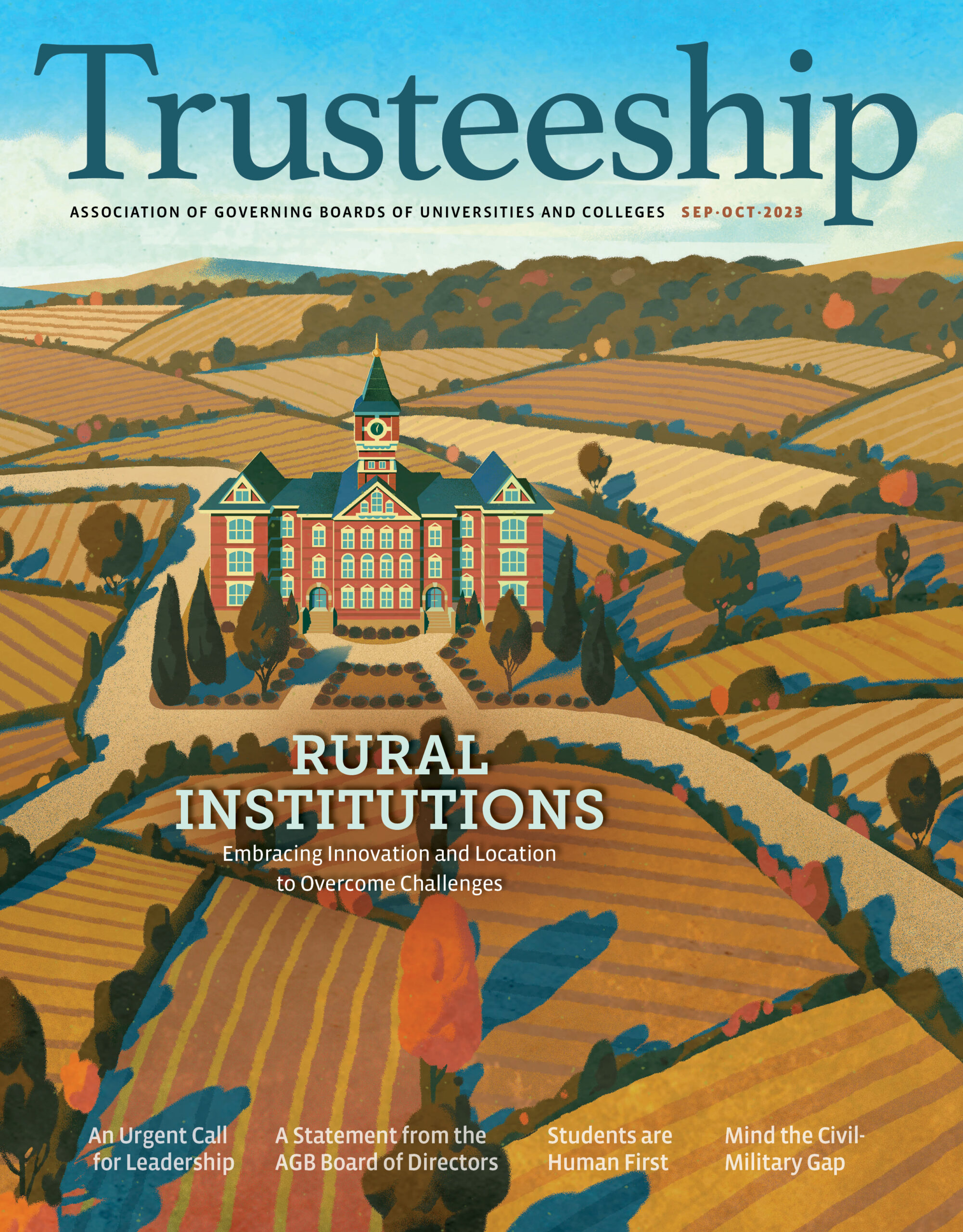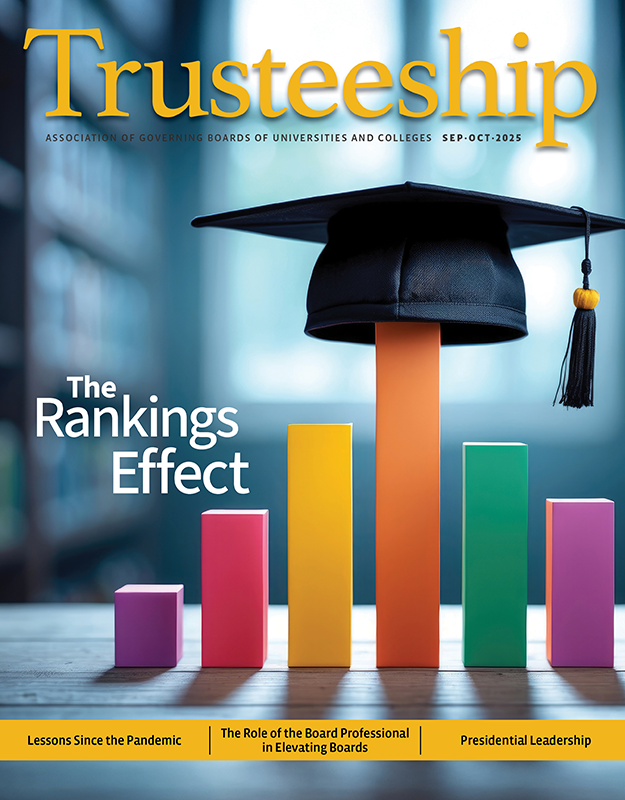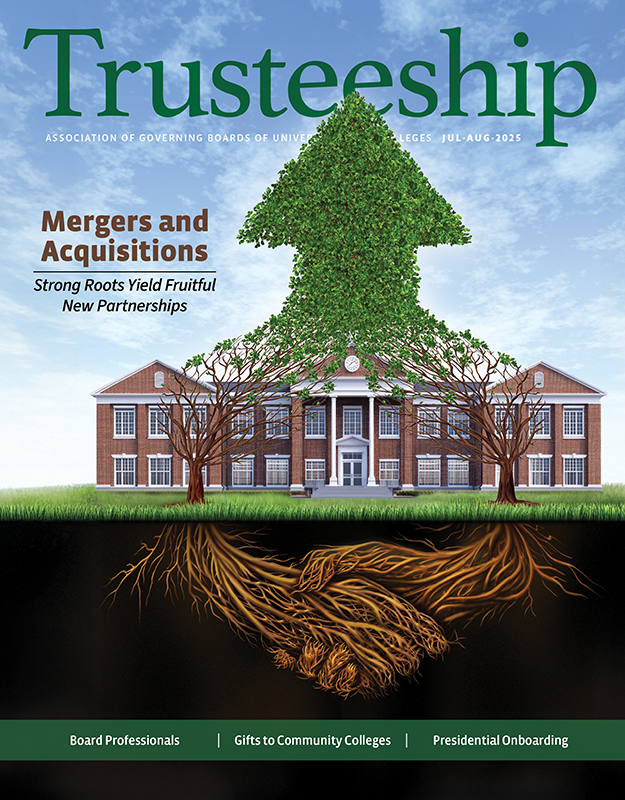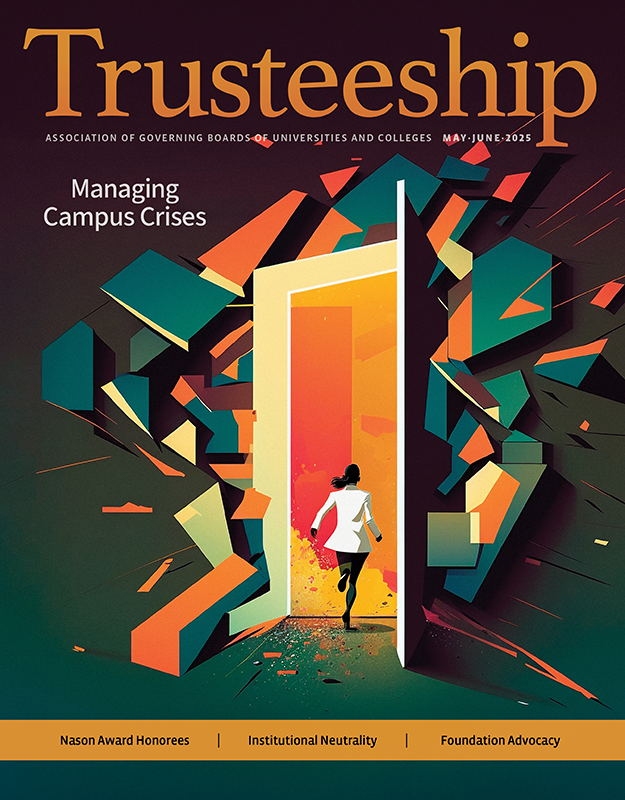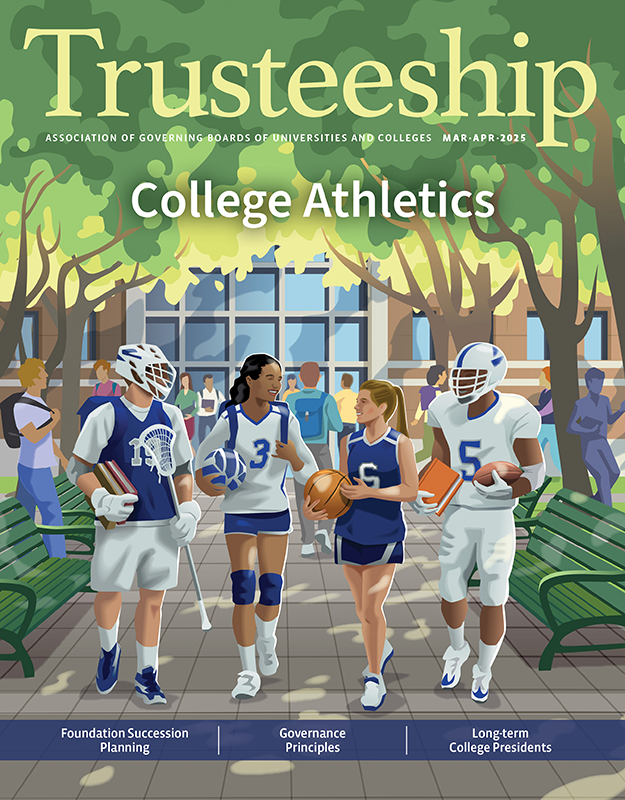Why this is important.
The success of higher education institutions depends on presidential leadership, and one of the governing boards’ most important duties is hiring, supporting, and retaining dynamic presidents. College and university presidents must embrace enterprise leadership and strive to excel “in the business disciplines of data-informed and market-oriented planning, marketing, and financial control.”1 AGB encourages our members to continually assess executive performance and develop stronger, more resilient leaders through robust partnerships between board members and presidents.
Who would want to be a college president in today’s challenging times? According to AGB interim president and CEO Ellen Chaffee, PhD, people of conviction, those who are mission driven, and those who believe in democracy and freedom.
Questions for boards.
Click below to reveal key questions for your board to consider:
Advocacy
Consequential Questions:
- How does our president visibly support academic quality and values?
- How effective is our president as an advocate for the institution’s interests?
- Does our president promote a positive and inclusive climate for students, faculty, and staff and actively advance the tenets of justice, diversity, equity, and inclusion?
- Does our president display a realistic and sophisticated understanding of how politics work at the local, state, and federal level?
Source:
Assessing and Developing College and University Presidents: An Enterprise Leadership Approach by Terrence MacTaggart, AGB 2020
Risk Management
Consequential Questions:
- Does our president ensure that enterprise risk management (ERM) is taken seriously as a means of managing risk and anticipating crises?
- In the president’s public and personal life, is their behavior above reproach?
Source:
Assessing and Developing College and University Presidents: An Enterprise Leadership Approach by Terrence MacTaggart, AGB 2020
Shared Governance and Performance
Consequential Questions:
- How well does our president work with the board as the “strategic partner” in advancing the enterprise?
- How are metrics, benchmarks, feedback, and the like used in decision-making and operations?
- Does our president ensure that the board and senior leadership receive accurate and timely financial information?
- What does our board expect to learn from presidential assessments? What actions should the board be able to take based on the assessment?
Source:
Assessing and Developing College and University Presidents: An Enterprise Leadership Approach by Terrence MacTaggart, AGB 2020
Recommended resources.
We carefully curated these staff-picked resources for you:
A Complete Guide to Presidential Search for Universities and Colleges
2018
Joseph S. Johnston Jr. and James P. Ferrare
A President’s Guide to Effective Board Leadership
2021
William E. Troutt
AGB President & CEO Update: Strategies to Support the CEO
Blog Post
Ellen Chaffee
Be Prepared
Blog Post
Carol A. Cartwright
Assessing and Developing College and University Presidents: An Enterprise Leadership Approach
2020
Terrence MacTaggart
Presidential Contracts
FAQ
AGB


